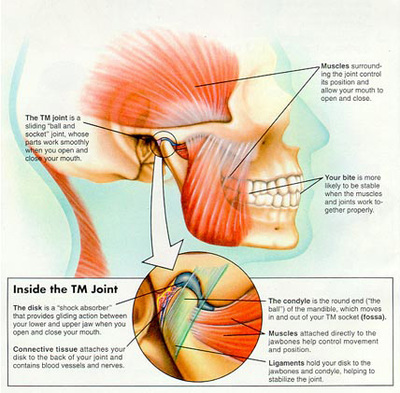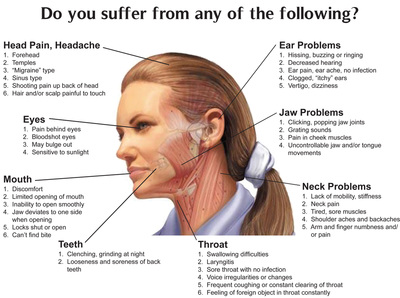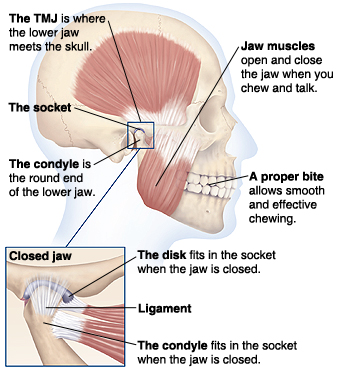|
A couple of weekends ago I had the pleasure of attending a postgraduate massage training in advanced clinical massage techniques for TMJ, face and jaw pain. It's a course I've been yearning to do for the past few years and it far exceeded my expectations.
The course was developed by a dental nurse who noticed the usual orthodox treatments for TMJ syndrome were ineffective at best, or painful and potentially damaging at worst and therefore created a massage treatment protocol for TMJ patients. Many clients reported a reduction of symptoms from their first treatment and every one of them were either completely resolved or drastically improved within 4-6 treatments. TMJ syndrome is an umbrella term for pain and dysfunction of the muscles of mastication (the muscles that move the jaw) and the temporomandibular joints (the joints that connect the mandible to the skull). The common symptoms of TMJ syndrome are wide and varied and include: Headaches- if you've ever experienced tension headaches when you're stressed it may come as no surprise that tension in the jaw (predominantly the masseter and temporalis muscle) can lead to headaches. We often instinctively massage our temples to help to relieve the pain but the masseter which is our primary chewing muscle often gets neglected. Bruxism- or teeth grinding. You may only be aware that you grind your teeth if you wake your partner in the night or your dentist may have told you that your teeth are being worn down and has recommended a mouth guard to wear at night. Mouth guards are only a temporary measure however as it doesn't address the cause or the trigger points and tightness that lead to the teeth grinding in the first place. Earaches and toothaches- trigger points from the masseter and temporalis muscle can amazingly refer pain into teeth and ears, which the pioneers of trigger point therapy Travell and Simons say "can lead to disastrous results for an innocent tooth". Trigger points in the sternocleidomastoid muscle (the thick ropey looking muscle on the side of your neck) can also refer pain into the ear. Tinnitus- or ringing in the ears. This may be multi factorial but there have been links to TMJ syndrome causing or contributing to tinnitus in some people. Dizziness- again dizziness may be multi factorial, but in some people dizziness may be due to restrictions in the soft tissue. Trismus- or difficulty opening mouth normally. Difficulty swallowing or speaking and sensitivity to light or noise. The masseter muscle is the strongest muscle in the body and can exert a huge amount of force, this muscle is our primary chewing muscle and rarely receives a break due to eating and talking, add that to grinding and clenching through the day and night and you can clearly see this is a muscle worthy of some TLC. Discomfort in the soft tissue of the neck and shoulders may also be alleviated by treating the muscles of mastication as they often develop secondary trigger points in TMJ syndrome. If you experience any of the above symptoms then search for someone qualified in manual therapy for TMJ syndrome, jaw and face pain in your area. If you're located near Killarney Massage Therapy Centre then arrange your appointment today on 087-2922851.
1 Comment
|
AuthorAdvanced clinical massage therapist and yoga teacher. Archives
December 2023
Categories
All
|



 RSS Feed
RSS Feed